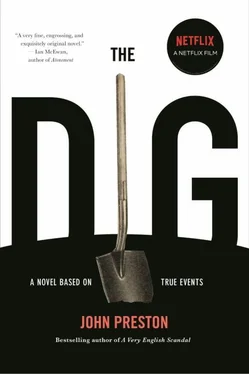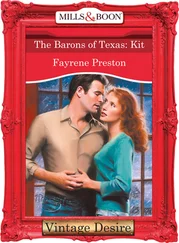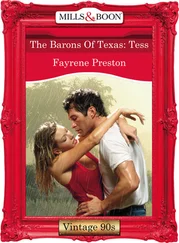For two days I picked gooseberries in the fruit cages and then spent another two trimming round the game coverts. A couple of times Robert came out to see me, but he didn’t stay long. I dare say I’ve rather lost my appeal since the excavation ended. For a couple of weeks there’d been talk of the Queen coming over from Sandringham to pay a visit. Apparently she’d been greatly interested in the finds. But in the event she had to cut short her stay and go back down to London.
One evening I came back to find out that the postman had left a parcel for me. Inside, I found five tins of my favorite pipe tobacco — MacBaren’s Black Ambrosia. With them was a note that read:
Dear Basil Brown ,
I hope this is the right blend. With many thanks and all best wishes ,
C. W. Phillips
I was so surprised I even opened one of the tins to make sure there was something inside. My thoughts about Phillips had not been running along entirely Christian lines over the last few weeks. Yet for all that, I was touched by his generosity. I wrote back thanking him and saying how I hoped we might meet up again before too long.
Meanwhile, the weather had changed. Already the leaves were starting to turn. I told Grateley it was no longer safe to leave the ship open to the elements and asked him to find out what Mrs. Pretty wanted me to do. Off he went once again and came back saying that I was to protect the site as I saw fit. He also said that I was welcome to use Will and John again, but I told him I could manage on my own.
The simplest way to cover the ship was to lay strips of hessian on the lines of rivets, then fill the interior with branches and dry bracken. That should keep it reasonably well protected, at least for the time being. It should also ensure that it can’t be seen from the air. On the top, I put a layer of conifer branches so that it wouldn’t stand out. It worked far better than I’d expected. From 100 yards away, you’d never know there had been anything there.
Towards the end of the afternoon, I was coming out of Top Hat Wood, dragging a few last branches of larch behind me, when I saw Mrs. Pretty standing by the shepherd’s hut. At first I thought she was carrying her probing iron — for a moment it crossed my mind that she might want me to start excavating another mound. But as I came closer, I saw it was a walking stick.
After she had looked over what I’d done, she said, “I could offer you a few more days’ work here, Mr. Brown. If it’s of any interest. I wondered if you might help building an air-raid shelter. There are no cellars in the house and I fear the time has come when we need to take every possible precaution.” She paused and jabbed at the ground with the end of her stick. “It will mean more digging, I’m afraid.”
I pretended to think about her proposal, although I didn’t really need to think about it at all.
“Thank you, Mrs. Pretty,” I said. “I’d welcome that.”
It took Will Spooner and me three days to construct the shelter. We had to dig down ten feet, then sink a semicircle of corrugated iron in the hole. Once that had been done, the whole thing had to be covered in two feet of earth and topped off with turf. By the time we had finished, it looked like we’d buried an elephant.
All that time I never read a paper or listened to the news. And we didn’t talk much either when we were working, not about anything important anyway. But for all that I seemed to know just what was going on in the world. Everyone did. There was no escaping it.
On the morning of the second day, Will came in and said, “The prime minister is addressing the nation at eleven o’clock. That can’t be good, can it?”
“No,” I said. “I wouldn’t have thought it could.”
“Mrs. Pretty says we can all go in and listen to the wireless in the kitchen.”
“I don’t think I will, thanks.”
“You sure, Baz?”
“You go,” I told him. “I’ll stay here.”
At ten to eleven, Will went inside. I carried on inside the air-raid shelter. We’d brought a paraffin lantern so we could see. A ventilation pipe had already been fixed on to the roof, but still the flame guttered and burned blue. The work was simple enough — just a matter of laying planks on a wooden frame and banging in a few nails. But at least it kept me from dwelling on things too much. Even so, I couldn’t help remembering being told how I wasn’t fit to fight last time. How far it had knocked me back. And there was another thought I couldn’t swat away — about how this was the only chamber I’d actually been allowed to set foot inside.
Will wasn’t gone long — twenty minutes at most. When he came back in, the light from the paraffin lamp sent his shadow leaping up the curve of the wall. He didn’t say anything. He just looked at me and nodded. Then he picked up his hammer and started banging away.
On the following day — and the day after that — German planes flew over Woodbridge. They circled around several times before heading off north, up the coast. Both times Billy, Vera and me reported for duty at the Air Raid Warden’s post at Bromeswell. As no uniforms had arrived yet, there was a good deal of confusion about who was in charge. Various busybodies bustled about, telling people what to do, but no one paid them any attention. Instead, everybody sat round swapping scare stories. As soon as the all clear sounded, we came straight back again.
That afternoon Will and me finished the shelter. When it was done I went back once again to Grateley to ask what I should do now. But this time he didn’t have to go and find out. He already knew.
“Mrs. Pretty said to tell you that there’s no longer any reason for you to hang around, Basil. She suggests you spend the rest of today packing your things and come round tomorrow at nine o’clock. She’d like a word before you go.”
“Right,” I said. “I’ll do that, then.”
I’d accumulated quite a bit more stuff than I’d arrived with — there were the clothes that May had brought, as well as my notes, and Maynard’s book in Norwegian — but Billy said he was coming over to Rickinghall next week and could drop my case off then.
At five to nine the next morning I wheeled my bike across the gravel and rang the bell. Leaves quite stiff and dry spun towards me on the breeze. Grateley answered and asked me to wait. Mrs. Pretty wasn’t long in coming. She walked slowly down the white-tiled corridor, stick in hand.
“No doubt you will be relieved to be going home, Mr. Brown,” she said when she had reached the doorstep. “And I am sure that your wife will be delighted to have you back.”
“I hope so,” I said.
It was only now that I saw she had an envelope in her spare hand. She held it out towards me. “I would like you to have this, Mr. Brown. As a token of my appreciation.”
“Mrs. Pretty—”
“No,” she said, “It’s the very least I can do. And there is something I wanted to tell you. It seems only fitting that you should be the first to know. After giving the matter a great deal of thought, I have decided to give the treasure to the British Museum. I know how much this will disappoint Mr. Reid Moir and Mr. Maynard, but I believe a find of this importance should be seen in a national collection. I also thought you should know that I have written to Mr. Phillips, telling him that I expect your work to receive proper recognition in any written account of the excavation.”
When I’d thanked her, I asked if Robert was around — I’d hoped to be able to say goodbye to him. But Mrs. Pretty said that he’d left the previous evening to start his new school in Ipswich.
“Perhaps you’d remember me to him.”
“Of course. I know how sorry he will be to have missed you.”
Читать дальше












